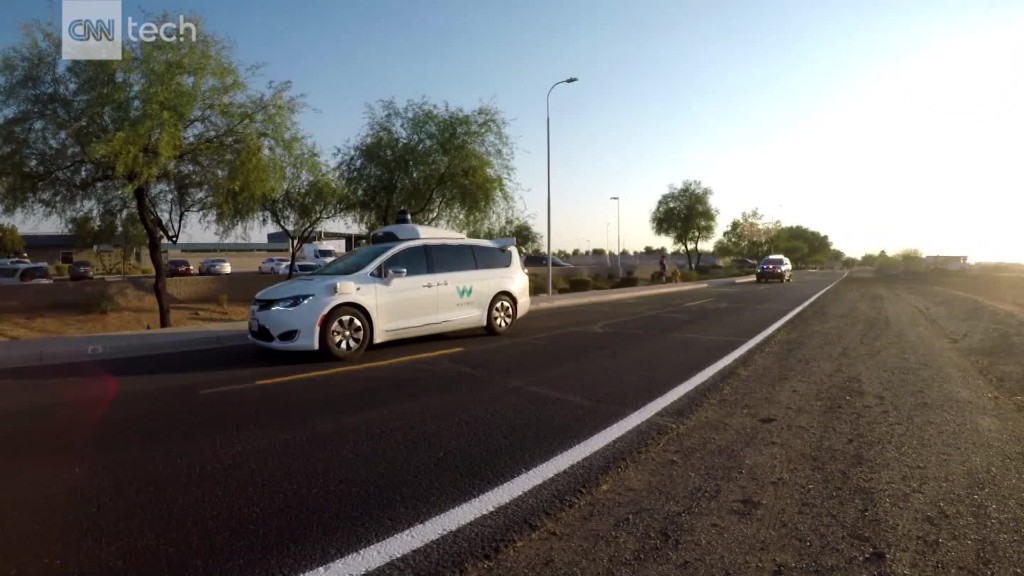
Waymo is setting up shop in China.
The driverless car division of Google's parent company, Alphabet (GOOGL), has registered a company in Shanghai called Huimo Business Consulting, according to a business registration filing.
Its potential operations include designing and testing of self-driving vehicle parts and products, as well as consulting on logistics and other areas, the filing said.
The Chinese subsidiary has 3.5 million yuan ($508,000) in capital, lists Waymo as an investor and identifies Waymo CEO John Krafcik as a board member.
Waymo, one of the leading US developers of driverless car technology, confirmed it had set up a legal entity in China several months ago and has people working there. The company declined to comment further.
Waymo is entering a market where major Chinese tech companies are already working on their own self-driving car programs. They include internet search giant Baidu, (BIDU) ride-hailing startup Didi Chuxing, e-commerce leader Alibaba (BABA) and social media and gaming company Tencent (TCEHY).
The Chinese government has sought to encourage the development of autonomous cars in the country, issuing guidelines for road tests in April.
Operating in China is likely to present particular challenges for Waymo. The company has always built its own maps for its self-driving cars, but that would be difficult in China, where mapping cities remains a sensitive issue. Google Maps works on desktops in China, but the mobile app version is unavailable in the country.

Waymo's move into China comes amid several steps by Google to expand its presence in the world's second largest economy.
Google has had a limited presence in China since it pulled many of its services in 2010 after refusing to censor its search results. Many of the company's most popular services -- search, Gmail, YouTube -- are banned in China.
But the company has been looking for other ways into a market that has more than 800 million internet users.
Google announced in December it was opening an artificial intelligence research center. It also recently launched an AI game on WeChat, Tencent's popular messaging platform. Google Translate and file management app Files Go are available in China as well.
The company came under fire earlier this month when reports emerged that it was working on a censored version of its search engine for China. Google CEO Sundar Pichai faced internal backlash for the plans, with employees worried the company is compromising its values in exchange for access to China's vast market.
-- Yong Xiong contributed to this report.

